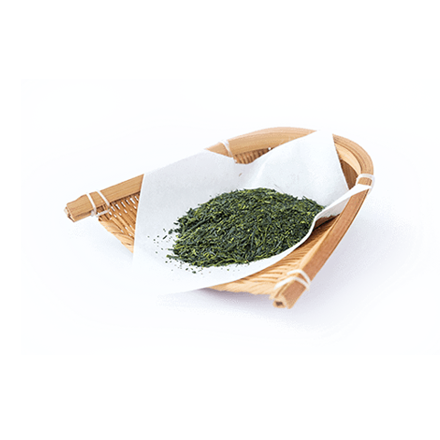Material Issues


With the formulation of the new medium- to long-term management plan (FY2022 – FY2026) in June 2022, the ITO EN Group revised its material issues in response to changes in the external environment. As a result, we established seven new material issues: Contribution to Dietary Habits and Health, Contribution to Sustainable Domestic Agriculture, the Environment, Deepening Ties with Local Communities and Society, Contribution to a Sustainable Supply Chain, Promotion of Diverse Human Assets and Active Roles for all, and corporate governance. We are working on these issues in conjunction with the medium- to long-term management plan.
Seven Material Issues

Contribution to Dietary
Habits and Health

Contribution to Sustainable
Domestic Agriculture

Environment

Deepening Ties with Local Communities and Society

Contribution to a Sustainable Supply Chain

Promotion of Diverse
Human Assets and Active
Participation by All

Corporate
Governance
-
Contribution to Dietary Habits and Health
Suggest and provide healthy and fulfilling lifestyles through research and development with an eye towards the age of centenarians and through products and services helpful to the health of people of different generations
-
Contribution to Sustainable Domestic Agriculture
Carry out the Tea-Producing Region Development Project to accelerate the development of high value-added materials and environmentally-friendly agriculture to help revitalize agriculture in Japan
-
Environment
Engage in initiatives for the protection of the global environment, which is shared by all of humanity, as a company that engages in business activities centered mainly on products derived from nature
-
Deepening Ties with Local Communities and Society
Contribute to the resolution of local societal issues through dialogues with various stakeholders.
Utilize communication through tea to support both physical and mental health
-
Contribution to a Sustainable Supply Chain
Maintain sustainable partnerships with suppliers to achieve the resolution of social and environmental issues and sustainable profits for all parties
-
Promotion of Diverse Human Assets and Active Roles for All
Construct an organization where everyone in the value chain is respected and where all employees work vigorously in good health
-
Corporate Governance
Practice and push ahead with sustainability management to improve responses to social and environmental issues as well as risk management and to increase corporate value
Material Issues Identification Process
1. Identification of social issues
From the perspective of the changing external environment, the demands and expectations of society, and key customer issues, we identified social issues by referring to international disclosure standards, ESG evaluation criteria, and the SDGs.
* Disclosure standards referred to: GRI Standards, SASB Standards, ESG evaluations (FTSE, MSCI), SDGs, ISO 26000.
2. Importance / materiality evaluation
We evaluated the material issues candidates by adopting a double material issues approach, which maps the extracted social issues from both the perspective of their importance for stakeholders and their importance for the sustainable growth of the ITO EN Group.
Reference Materiality map

3. Stakeholder dialogues
Based on the candidate material issues identified, we sent a questionnaire to external experts, investors, internal and external officers and other stakeholders asking about their expectations and requests for the ITO EN Group, and issues that should be prioritized. Senior management and external experts also held stakeholder dialogues to hear the opinions of stakeholders.
4. Identification of material issues
After steps 1-3, the Board of Directors deliberated over the candidate material issues in conjunction with the medium- to long-term management plan. The Board identified seven material issues as the areas to be addressed as management issues with corresponding themes for initiatives.
Seven Material Issues and Indicators (KPIs)
We have set key performance indicators (KPIs) for each material issue in line with the medium- to long-term management plan, and are managing and evaluating them using a PDCA cycle. We plan to revise the indicators (KPIs) regularly according to the progress of initiatives.
| Material issues | Theme | Indicators (KPIs) | SDGs (Contributable Goals and Targets) | |
|---|---|---|---|---|
| Contribution to Dietary Habits and Health | Research and development toward the era of the 100-year lifespan |
Number of research presentations relating to health value of foods FY2026: 25 (per year) |
|
3.3 3.4 |
| Contributing to the health needs of customers and their ever-diversifying lifestyles |
FOSHU and Food with Functional Claims sales breakdown FY2026: 30% or more |
|
3.3 3.4 |
|
|
Overseas sales ratio FY2026: 12% or more |
||||
| Product safety and security Pursuit of quality and reduction of environmental impact |
International food safety certification rate: 100% * Domestic beverage / leaf manufacturing plants |
|
12.4 | |
|
Beverage / leaf factory audit rate: 100% * Domestic beverage / leaf manufacturing plants |
||||
| Contribution to Sustainable Domestic Agriculture | Evolution of a unique world-class agricultural mosdel |
Area developed through the Tea-Producing Region Development Project FY2026: 2,650 ha FY2030: 2,800 ha |
|
2.3 2.4 8.3 11.a 17.16 |
|
Production volume of organic farming FY2026: 380 t FY2030: 500 t |
||||
| Environment | Response to climate change |
CO2 emission reduction rate (compared with FY2018) FY2030 Scope 1 & 2: 50% reduction, Scope 3: 20% reduction FY2050 Scope 1-3: carbon neutral |
|
7.2 12.2 13.1 |
|
Company-wide renewable energy ratio FY2030: 100% |
||||
|
Ratio of electric vehicles introduced (percentage of all vehicles) FY2030: 50% |
||||
| Water resources | Reduction rate of basic water usage intensity (compared with FY2018) FY2030: 16% reduction * water usage per 1 kL of product produced |
|
6.4 6.6 |
|
|
Ascertaining the impact of water risks (storms and other flood / water damage) and water stress (droughts, etc.) on business |
||||
| Sustainable containers and packaging |
Percentage ratio of recycled materials used for all PET bottle FY2030: 100% |
|
12.4 12.5 14.1 |
|
|
Percentage ratio of recycled materials used for all Oi Ocha PET bottle FY2025: 100% |
||||
| Biodiversity conservation |
Maintenance and operation of GAP certification: 100% * The Tea-Producing Region Development Project |
|
15.4 | |
|
Total number of participants in water source conservation activities, environmental conservation and maintenance activities: 500 (per year) |
||||
| Promoting waste reduction / resource recycling |
Foodstuff recycling rate: 90% or more |
|
9.4 12.3 12.5 |
|
|
Number of recycled used tea leaf products launched FY2026: 2 (per year) |
||||
| Deepening Ties with Local Communities and Society | Co-creation with local communities |
Number of sakura (cherry trees) planted FY2026: 150 (per year) |
|
11.a 17.17 |
| Creation of connections through tea |
Number of participants in dietary education FY2026: 600,000 (per year) |
|
4.4 4.7 11.4 |
|
| Contribution to a Sustainable Supply Chain | Building a sustainable supply chain |
Number of quality meetings held FY2026: 7 (per year) |
|
9.4 |
| Conducting assessments of suppliers | ||||
| Promotion of Diverse Human Assets and Active Roles for All | Promotion of initiatives to ensure respect for human rights |
Number of compliance education sessions held (for all employees) FY2026: 12 (per year) |
|
8.5 10.2 |
| Development and empowering of diverse human resources |
Employee engagement score FY2026: 3.5 or higher |
|
4.4 4.7 8.5 |
|
|
Female manager ratio FY2026: 10% |
||||
|
Gender pay gap (regular full-time employees, male employees = 100) FY2026: 80% Of the above, less than 10 years of service FY2026: 100% |
||||
|
Percentage of male employees taking childcare leave FY2026: 50% |
||||
| Promoting health and productivity management |
Maintain Health and Productivity Management Organization (White 500) certified |
|
3.5 3.6 3.a |
|
| Corporate Governance | Promoting sustainability management |
Strengthen the system for tackling material sustainability issues and supervisory functions, and engage in dialogues with stakeholders |
||
| Promoting DX |
Number of DX Promotion Committee meetings FY2026: 11 (per year) |
|||
| Enhancing the group risk management |
Number of Risk Management Committee meetings FY2026: 4 (per year) |
|
16.5 | |
Number of regular meetings with (10) affiliated companies FY2026: 4 (per year) |
||||
